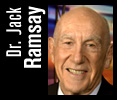 |

|
| Tuesday, July 17 Updated: July 18, 4:24 AM ET All teams created equal in free agency By Dr. Jack Ramsay Special to ESPN.com |
||||||||||
|
The NBA's free-agency system in combination with the salary cap and the luxury tax is a great equalizer, giving the smaller-market teams a chance to compete on relatively equal footing. It's amazing how the league has been able to come up with impediments to big-market teams taking over the league and obtaining all the best players. Because the luxury tax makes for a harder salary cap than ever before, the rich can't necessarily get richer. Besides, having the highest payroll is no guarantee of success anyway. Portland has the league's highest payroll, but -- in terms of talent -- the Blazers may only be the fifth- or sixth-best team. Instead of spending the most money, it's more important for teams to make wise selections. Many handshake deals have been announced already, but a late snag in negotiations between the league and its players' union has put on hold temporarily the expected flurry of finalized trades and free-agent signings. It remains unclear what will happen now, but the league and the players' union were at odds over details of the new salary cap. The decision on the salary cap will impact what teams are able to do. In the interim, the cap is set at $35.956 million, only slightly above last year's amount. Teams, however, were making plans with a new cap figure of around $42.5 million in mind. If the cap remains at the interim level, several teams could be forced unwillingly to pay the luxury tax, which goes into effect for the first time this year. Players waiting for satisfactory offers and places to play will be disappointed, either not getting the contract they desired or not getting selected at all. The luxury tax will greatly influence the free-agent market. The owners are concerned about how players' signings will affect their ability to stay at or under the salary cap so they can avoid paying the luxury tax. The only two owners who seem to have little consideration for the cost of the luxury tax are Portland's Paul Allen and Dallas' Mark Cuban. They just want to get the best players and are strong candidates to acquire players they perceive will help their teams. Here's how I would categorize some of the free-agent activity so far (the "signings" referred to below are expected, but not yet official):
Best signing Philadelphia had two key re-signings, Dikembe Mutombo and Aaron McKie. The 76ers needed to keep their core players together and should now again be the favorites in the Eastern Conference. Everyone knows about Mutombo's impact as a defensive force inside, but McKie has lifted his game and become a very valuable player. He can start or come off the bench and can play the one, two or three spots, although he is best at the two. He's also a good defender and a clutch shot maker.
Most questionable signing Todd MacCulloch's offer sheet with New Jersey (six years, $33.75) may seem a bit questionable, but he would upgrade the Nets at the center position. He is a cut above Evan Eschmeyer. If MacCulloch played significant minutes, he would average 10 points and 10 rebounds a game, and could score more with Jason Kidd on the team. MacCulloch is not a make-or-break player for the Sixers, though. I wouldn't be surprised to see the Sixers allow MacCulloch to go to New Jersey so they don't go over the luxury tax limit. His loss should have little effect on the Sixers. Rookies Samuel Dalembert and Alvin Jones will prove to be just as effective.
A signing to watch
A change for the better
Key losses |
|
|||||||||

